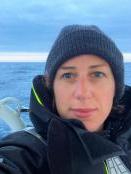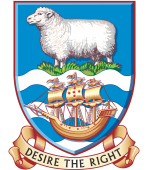Dr. Emilie Le Luherne
Scientific Team

Miscellaneous Information
Background & Qualifications
I grew up in Brittany, North-western France, where I became fascinated by marine life and the relationships between species and their environment. I obtained a BSc in biology from the University of Rennes 1 (France) with a 6-month ERASMUS experience at the University of Aristotle (Greece). I completed my MSc (Honours) in marine biology at the Aix-Marseille University (France), conducting research on the diet of pelagic fish species using complementary analyses of stomach contents and stable isotopes (EMBIO lab). Then, I completed my PhD at the Fisheries Ecology lab (Rennes, France) exploring the impacts of green tides, i.e. excessive proliferations of green macroalgae known as an anthropogenic pressure, on fish communities and individual performances in coastal and estuarine areas.
My research broadly focuses on fish ecology and species responses to anthropogenic pressures and climate change, and I am particularly interested in examining these responses using natural tracers. I have explored these topics using various technical (e.g. spatial indices, sclerochronology, otolith microchemistry and stable isotopes) and analytical skills. Besides, during my positions in applied ecology, I conducted the stock assessment of cod in the Celtic Sea in 2018 and 2022 at the LTBH lab (IFREMER, Lorient, France) and I implemented a new sampling protocol to examine ecological roles of salt marshes for fish communities at the French National Reserves (Granville, France).
Currently, I am working as a Fisheries Scientist (Toothfish) at the Falkland Islands Fisheries Department. The overall objective of my current position is to coordinate and support biological and life-history work for Patagonian toothfish stock assessment and explore related research issues to improve our knowledge of the Patagonian toothfish ecology.
Reasearch interests
Marine biology and ecology; functional ecology; fish ecology; stock assessment; coastal and estuarine nursery grounds; anthropogenic pressures; climate change; spatial indexes; biometry; stomach contents; stable isotopes; natural tracers; sclerochronology; otolith microchemistry; stress markers
Publications
Le Luherne E., Daverat F., Woillez M., Pecheyran C. and de Pontual H. (2022). Coupling natural and electronic tags to explore spawning site fidelity and natal homing in northeast Atlantic European seabass. Estuarine, Coastal and Shelf Science.
Paumier, A., Tatlian, T., Reveillac, E., Le Luherne, E., Ballu, S., Lepage, M. and Le Pape, O. (2018). Impacts of green tides on estuarine fish assemblages. Estuarine, Coastal and Shelf Science, 213, 176-184.
Le Luherne E., Le Pape O., Murillo L., Randon M., Lebot C. and Réveillac E. (2017). Influence of Green Tides in Coastal Nursery Grounds on the Habitat Selection and Individual Performance of Juvenile Fish. PLoS ONE 12(1): e0170110
Le Luherne E., Réveillac E., Ponsero A., Sturbois A., Ballu S., Perdriau M. and Le Pape O. (2016). Fish community responses to green tides in shallow estuarine and coastal areas. Estuarine, Coastal and Shelf Science.175, 79-92.
Le Bourg B., Bӑnaru D., Saraux C., Nowaczyk A., Le Luherne E., Jadaud A., Bigot J. -L. and Richard P. (2015). Trophic niche overlap of sprat and commercial small pelagic teleosts in the Gulf of Lions (NW Mediterranean Sea). Journal of Sea Research. 103, 138-146.
